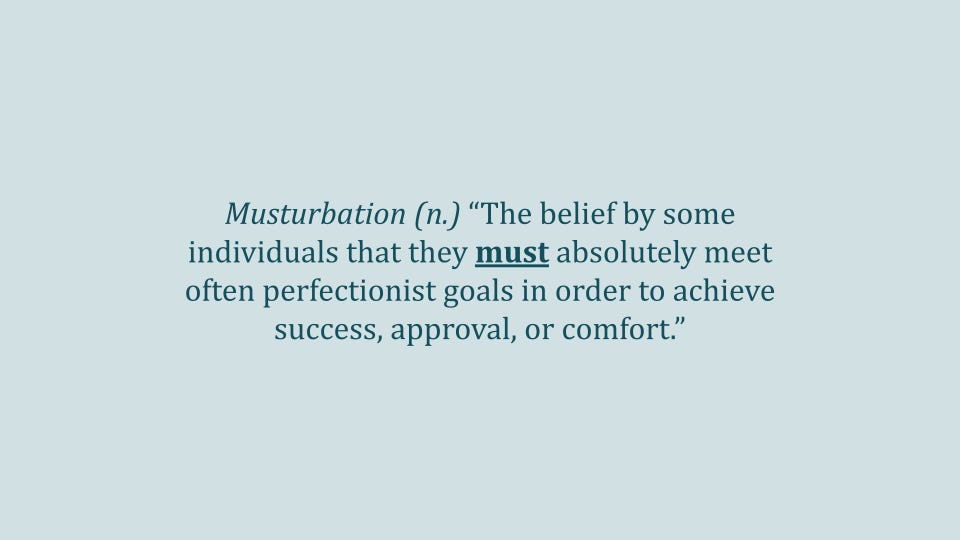Why You Should Stop Musturbation
Because when you let go of “must,” you open the door to possibility.
Let’s get something straight: musturbation might sound like something your inner teenager would giggle at and honestly, I am not here to judge (don’t that thing you thought of) but it’s a very real psychological trap that’s probably messing with your happiness, productivity, and maybe even your relationships.
Coined by the late psychologist Albert Ellis, musturbation is the irrational belief that you must do something in order to be happy, successful, or worthy.
As in: I must be perfect, I must never fail, Others must treat me fairly, or My barista must get my oat milk latte right or the day is ruined.
Musturbation is inflicted perfectionism with a side of emotional blackmail.
What Is Musturbation ?
Psychologists define musturbation as an unhealthy cognitive habit: the belief that life must go your way, or else.
It’s not just setting high standards, that’s great! It’s demanding absolute success, every time, or spiralling when it doesn’t happen.
Think of it like this: having goals is like having a GPS, helpful, flexible, recalculates when needed. Musturbation is like yelling at the GPS because it didn’t reroute fast enough after you missed the exit, and then deciding the whole road trip is a failure.
Dr. Albert Ellis, founder of Rational Emotive Behavior Therapy (REBT), developed the concept of musturbation as a way to highlight how irrational demands, not just preferences, fuel emotional distress. He argued that when we turn “wants” into “musts,” we create inner tyrants that punish us for being human.
Modern cognitive-behavioral therapy (CBT) echoes this view. Research consistently shows that rigid, perfectionist thinking is correlated with higher levels of anxiety, depression, and chronic stress.
Why? Because these absolute beliefs leave no room for nuance, adaptability, or failure, three things that reality is very, very fond of.
In neuroscience, this kind of black-and-white thinking is associated with increased activity in the default mode network, a brain system linked to rumination and self-criticism. Your brain, essentially, gets stuck in a loop of “not good enough.”
Musturbation isn’t just a 20th-century psychological insight, it’s a problem the Stoics flagged roughly 2,000 years ago.
Take Epictetus, a former slave turned philosopher, who famously said:
“Some things are in our control and others not.”
What musturbators do is demand control over everything: outcomes, other people’s opinions, the weather, the Wi-Fi.
Keep reading with a 7-day free trial
Subscribe to The Wisdomous to keep reading this post and get 7 days of free access to the full post archives.






